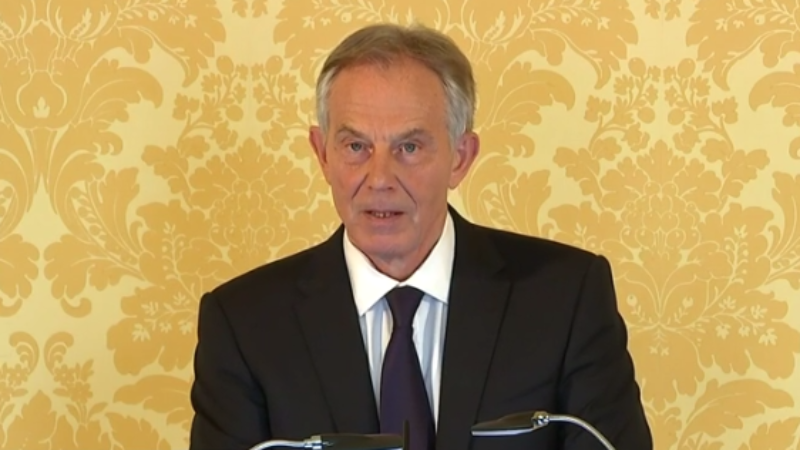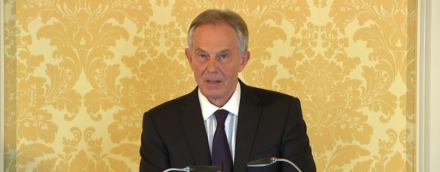

The Chilcot Report, released last week, offers the most comprehensive, evidence-based account ever written of the decisions that led to Britain’s participation in the US-led invasion of Iraq in 2003, and the lessons to be learned from the conflict.
As humanitarians, we owe it to the hundreds of thousands who lost their lives in Iraq and are dying today in conflicts around the world to make Chilcot about them, and not all about us. If it becomes merely a stick for beating political opponents and drawing crude divisions in the Labour party, it will be a wasted opportunity to learn the right lessons.
In the simplistic black-and-whiteness of current political discourse in Britain, if all we glean from the thousands of pages of Chilcot is the binary logic: non-intervention = good, intervention = bad, then I fear we are in danger of becoming prisoners to our history rather than its scholars. The lessons from Iraq – the mistakes – need to be understood in their context and complexity, and not as a one-size-fits-all ideology. You can be wholly opposed to the decision to invade Iraq, whilst also believing that intervention should always be an option when it is centered on human rights and the protection of civilians.
In Kosovo and Sierra Leone, Britain did this well. The decision by the Labour Government to intervene helped prevent thousands of people from being massacred. In contrast, during the genocide in Rwanda the Major government was complicit in the UN withdrawal of peacekeepers, abandoning hundreds of thousands of civilians to be slaughtered – another lesson from history we should never forget.
Around the world, right now, are humanitarian crises resulting from armed conflict. In Iraq, Syria, Libya, Yemen, South Sudan, Burundi, DRC, and parts of Nigeria, to name a few, parents bury their children and children bury their parents – innocent victims of other people’s wars. We on the left must not become permanent by-standers to their suffering.
These decisions will never be easy and will often divide opinions, even within our party. People with shared values and ideals who want to do good in the world will often disagree on policy and there must be space for that debate in the Labour Party, free from accusations and division. In that vein, I welcome the statement of Labour’s internationalist values from the Labour Campaign for International Development which is being signed by Labour MPs today as a reminder that even when we disagree we are united in our determination to make the world a better place.
We believe Labour is an internationalist party with a proud record of fighting injustices around the world, from supporting Indian independence, to the anti-apartheid struggle, to leading action to protect civilians in Sierra Leone and Kosovo. As Robin Cook said, we must never ‘turn a blind eye to how other governments behave and a deaf ear to the cries for help of their people’.
The next Labour Government must learn from the many successes and failures of our foreign policy decisions. Every situation is different, but we will always be guided by our internationalist principles and by our international obligations such as the Responsibility To Protect Civilians, which we signed up to with each and every government in the U.N. in 2005.
This principle acknowledges that when a government either wilfully fails to protect the security of its citizens, or is unable to do so, the international community has a clear obligation to intervene, choosing from a wide range of actions including diplomatic means, sanctions and in the most extreme cases, military operations.
Through our development work and following any direct interventions we will always stand ready to support communities and countries to rebuild with a long term development plan to secure safety, stability and prosperity for their people.
The merits of any actions we take or decline to take must always be carefully considered and scrutinised. The lessons of Iraq will be important in those considerations – so too must be the lessons of Bosnia, Kosovo, Rwanda, Sierra Leone and Syria. The next Labour Government must make the case for an ethical foreign policy and champion a progressive approach to humanitarian intervention.
We have always believed that all people matter, that global inequalities are no less our concern than those we fight at home and that we have moral obligations that reach beyond our borders to people we will never meet and places we will never visit. We will never shirk these responsibilities and will always work to further progressive Labour values on the global stage.
Sam Rushworth is the Labour Campaign for International Development’s membership officer and works on young people’s rights and post-conflict reconciliation in Rwanda.




More from LabourList
Paul Nowak column: ‘Labour must focus on the basics’
‘Labour’s two-child cap victory rings hollow while asylum-seeking children remain in poverty’
SPONSORED: ‘Unlocking pension power to boost the UK’s fortunes’